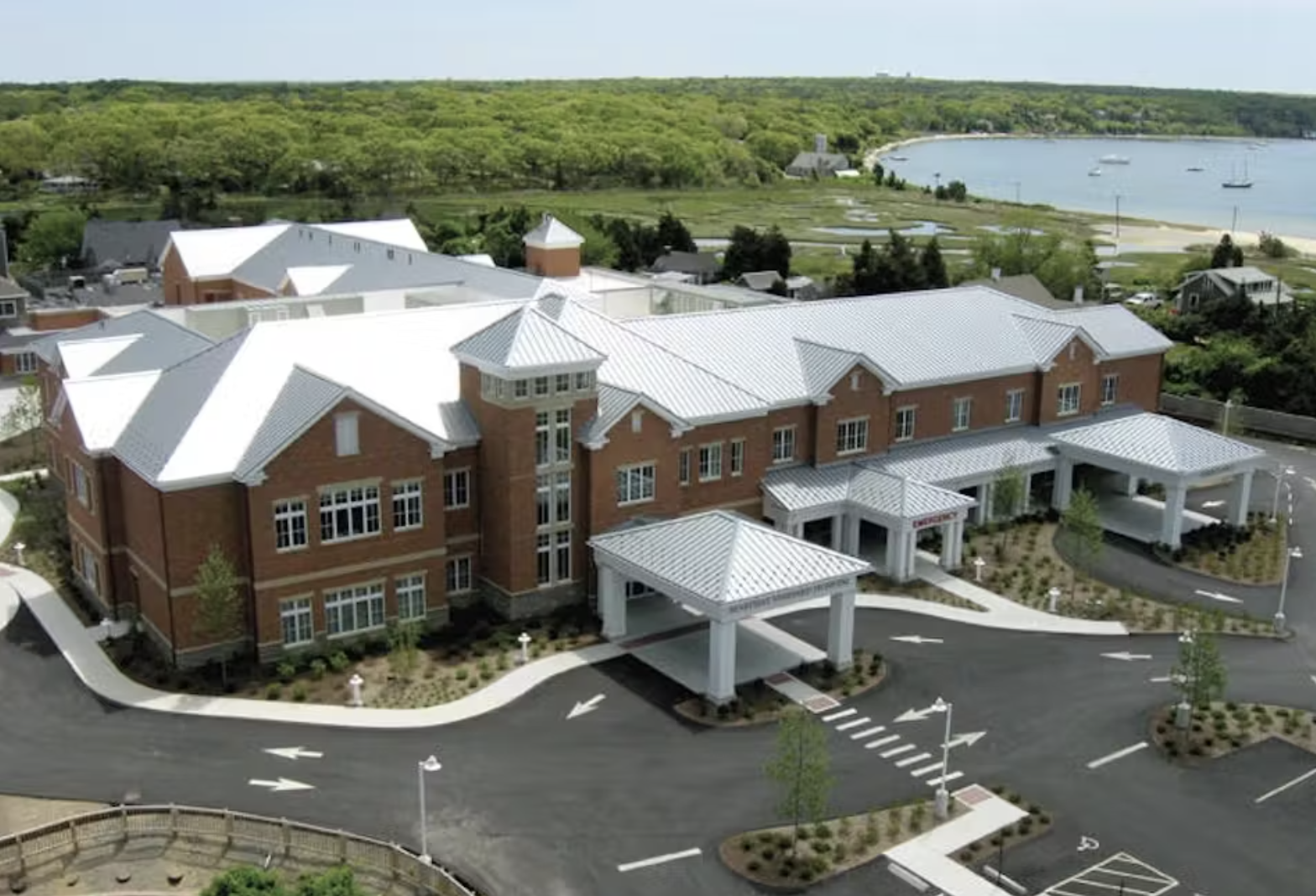Martha’s Vineyard Hospital is the Island’s only hospital and a critical lifeline for year-round residents and seasonal visitors alike. The MV Hospital Resilience Project highlights how vulnerable access routes and emergency medical services (EMS) could be to climate impacts such as flooding, storms, and sea level rise—and what can be done to protect them.
Here’s what the recent technical work shows, why it matters to all of us, and how Islanders can help make sure critical infrastructure continues to function when we need it most.
Key elements of the MV Hospital Resilience Project include:
- A climate vulnerability assessment of roads currently used by emergency medical services (EMS), to map which segments are already vulnerable and when additional segments may become inundated in future scenarios.
- Routing / alternative route analysis: What options exist if primary routes are flooded? Which segments could be raised or modified to maintain access?
- Conceptual retrofit designs: For priority road segments, design ideas (road raising, nature-based buffers, drainage enhancements) to reduce flooding risk while balancing cost and feasibility.
- A timeline of projected vulnerability: by 2050, about 1.9 miles of roadway are projected to face tidal flooding impacts; by 2070 that expands to ~7.4 miles.
- A focus on critical intersections and “choke points” (e.g. Five Corners, Beach Road, Lake Avenue, East Chop Road) that are especially at risk under moderate storm/tide events.
This project was not a vague planning exercise—it was a targeted, technical effort to understand how to keep our hospital reachable when roads are threatened by climate change.
Community Partners
This study was a collaborative effort between the Martha’s Vineyard Commission, massDOT, Martha’s Vineyard Hospital, The Town of Oak Bluffs, the Massachusetts Office of Coastal Zone Management, EMS providers, technical consultants, and local stakeholders. Together, these partners examined roadways, emergency routes, and hospital access to identify climate risks and potential solutions.
Why This Work Matters
The Island’s road network is limited, and many key routes to the hospital are at risk of flooding or storm damage. Protecting hospital access is essential for public safety, especially during emergencies when minutes matter most. This isn’t just an “infrastructure project”—it’s about public health, safety, and equity. If climate-driven flooding hampers hospital access, that affects:
- Lives in emergency: Every minute in EMS response matters. Delays caused by flood-impacted roads could mean worse outcomes in accidents, heart attacks, strokes, childbirth complications, etc.
- Vulnerable populations: Elderly, people with chronic health conditions, those with limited mobility are more likely to depend on timely hospital transport.
- Healthcare equity: If only parts of the Island remain reliably connected, communities farther from resilient corridors may feel even more isolated or at risk.
- Trust in resilience planning: If we invest in marsh migration or seawalls but ignore lifeline infrastructure, we leave a major gap in climate adaptation.
- Economics & insurance: Infrastructure failures are costly. Preventative improvements may reduce repair cost, liability, insurance risk, and reassure residents and investors.
What Islanders Can Do
Islanders can support hospital resilience by:
- Learning about the findings of the study and sharing them with neighbors.
- Advocating for investments in resilient roads, drainage, and emergency planning at town meetings.
- Supporting local and regional efforts that prioritize climate adaptation and public safety.
Looking Ahead
The MV Hospital Resilience Project is a critical piece of the Island’s climate adaptation mosaic. It turns high-level climate forecasts into actionable infrastructure insights—mapping not just what may flood, but how to keep lifesaving access routes open when it matters most.
But a study alone doesn’t build roads. The next steps—funding, design, permitting, build-out—will depend on political will, community pressure, and sustained commitment.
As Islanders, we have a stake in ensuring our way of life, safety, and healthcare remain secure over the coming decades. We’ve asked our marshes to adapt, our shorelines to hold, and now we must demand that our roads, our EMS, and our hospital keep pace with a changing climate.
Strengthening Martha’s Vineyard Hospital’s resilience means strengthening the resilience of the entire Island community.
Further Reading
The Martha’s Vineyard Hospital Resilience Project
MV Hospital Climate Vulnerability Assessment
Martha’s Vineyard Hospital Resilience Project Receives $170K





